6 contact lens mistakes to avoid
Wearing contact lenses can increase your risk of dry eye disease. Here's how to keep your eyes healthy while wearing contacts.
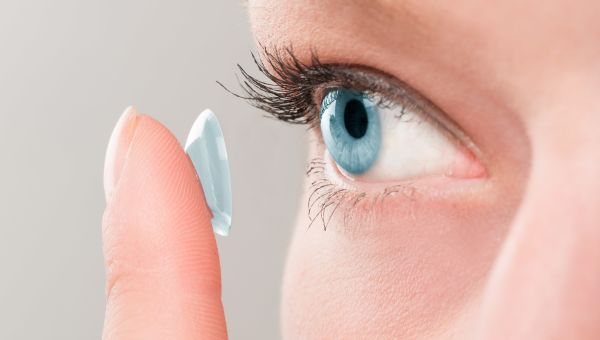
An estimated 40 million adults in the United States wear contact lenses, but every year, one out of every 500 of them will experience some sort of infection. If left untreated, infections such as keratitis, an infection of the cornea, can cause blindness.
But, if worn correctly, contacts can be extremely helpful to people with vision problems. There are many types of contact lenses to choose from, but about 90 percent of people who wear them, wear soft lenses. Here are some of the vision problems they can help with:
- Myopia or near sightedness: blurred vision when looking far away
- Hyperopia or far-sightedness: blurred vision when looking close up
- Astigmatism: blurred vision when looking both far away and close up
- Presbyopia: blurred vision when looking close up in older adults
We talked to eye specialist Arezo Amirikia, MD, of Saint Joseph Mercy Health System in Michigan to learn about the most common contact mistakes and how you can adopt healthy habits to prevent infections and irritation.

Wearing your contacts for too long
The biggest mistake Amirikia sees among contact wearers is not following the care and wear instructions. In fact, about half of contact wearers wear their lenses longer than what’s recommended, waiting until their eyes become irritated to change them out.
“Wearing them longer than the recommended time can cause allergic reactions, eye irritation, redness or even a corneal ulcer, an infection in your cornea,” says Amirikia.
There are some lenses that should only be worn for a day, some that should be disposed of every two weeks, some that last for a month and some that you can keep for over a month. If you’re wearing contact lenses that can be worn longer than a day, write the date you started wearing them on the contact lens box to help you remember when to change them out.
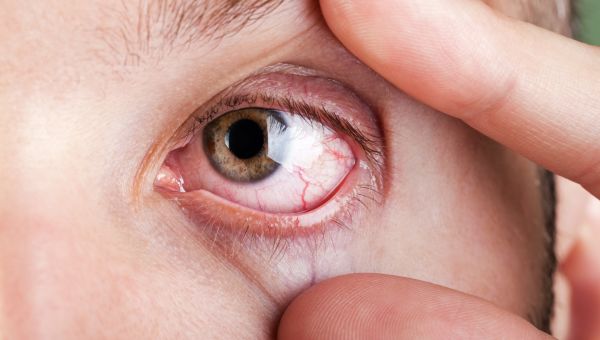
Not seeking help when something feels uncomfortable
Amirikia says some patients wait too long to see their eye doctor if something feels or looks unusual. If your eye is red or irritated, or you have increased light sensitivity, discharge coming from your eye, pain or blurred vision, you should see your doctor right away so the infection doesn’t get worse.
If you’re having eye trouble, remove your contacts and wear your glasses, then see your doctor as soon as you can. If you’re not having problems, most eye doctors recommend a yearly exam.
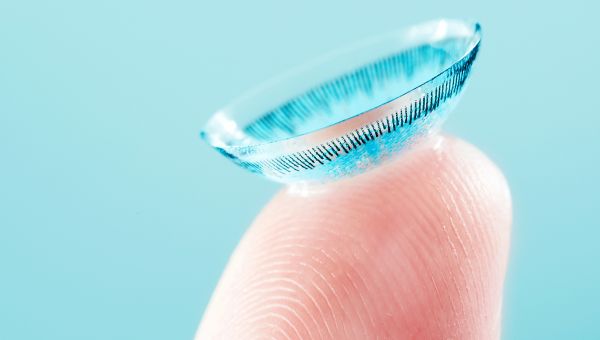
Wearing cosmetic contacts without talking to your eye doctor
Nowadays, there are numerous ways to buy cosmetic contacts, or contacts that can change the color or look of your eye, without seeing an eye doctor first. Amirikia says that is a big no-no. Non-prescription lenses aren’t fitted to your eye specifically and can even cause damage. “If a contact lens doesn’t fit right, you’re increasing your risk of getting an eye infection.”
Don’t ever buy contact lenses without a prescription—see your eye doctor to discuss what’s best for you based on your eyes, lifestyle and budget. If you have questions about how something is feeling or if you’re having difficulties with your lenses once you do get a prescription, be sure to let them know so they can help.
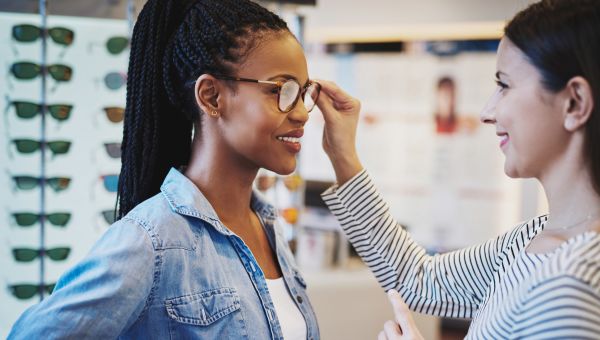
Neglecting to buy a back-up pair of glasses
If you’re wearing contacts on a daily basis, you may have a day or two where your eyes are irritated and you need to take a break from wearing them. “If something happens to your eyes, and you don’t have a pair of glasses on hand, it can be a crisis trying to get in to see your eye doctor,” says Amirikia. It can be difficult to get glasses or contacts made in one day.
When you’re first prescribed contacts, be sure to invest in a pair of glasses, so you’re not stressed when you need to take a break from your contacts.
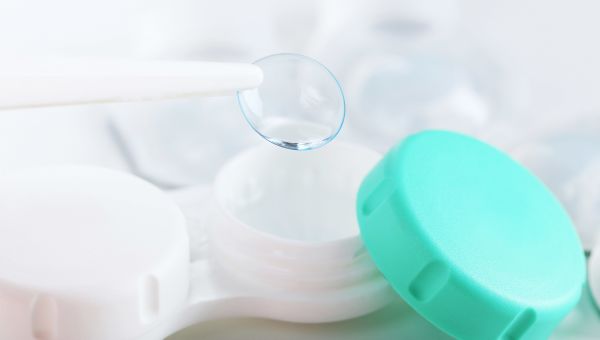
Forgetting to change your solution or replace your contact case
Between 40 and 90 percent of contact lens wearers ignore the care instructions for their contact lenses.
Every time you remove your contact lenses from your eyes, you should rub and rinse them with a disinfecting solution. But don’t use expired solution, saliva or water.
“If you don’t change your solution every day, bacteria can grow pretty quickly, especially in warm climates,” says Amirikia. And just adding a little bit more solution on top of old solution isn’t good practice either. “You’ve got to dump out the old solution, clean out your case and then put new solution in.”
When it comes to storing your cases, it’s best to store them upside down with the caps off so they dry out when you’re not using them. A good rule of thumb? Contact cases should be replaced at least once every three months, to prevent bacteria from growing and causing infections like keratitis.
Before putting your contacts in—or taking them out—you should always wash your hands, too.

Never trying contact lenses at all
“Over the last ten years, there have been significant improvements in contact lenses,” says Amirikia. If you’ve ever tried contact lenses and they didn’t work for you, you may want to ask your eye doctor about them again. “People with significant nearsightedness can actually see better with contacts than they can with glasses because you get less distortion in the periphery when you wear contact lenses.”
Plus, contacts are comfortable and naturally move with your eye. They make it easier to see during sports and activities, and they won’t fog up like glasses do in extreme hot or cold temperatures.
Chatting with your doctor could help you learn whether or not you should give them a whirl.
More On


video

article

slideshow


video


video
